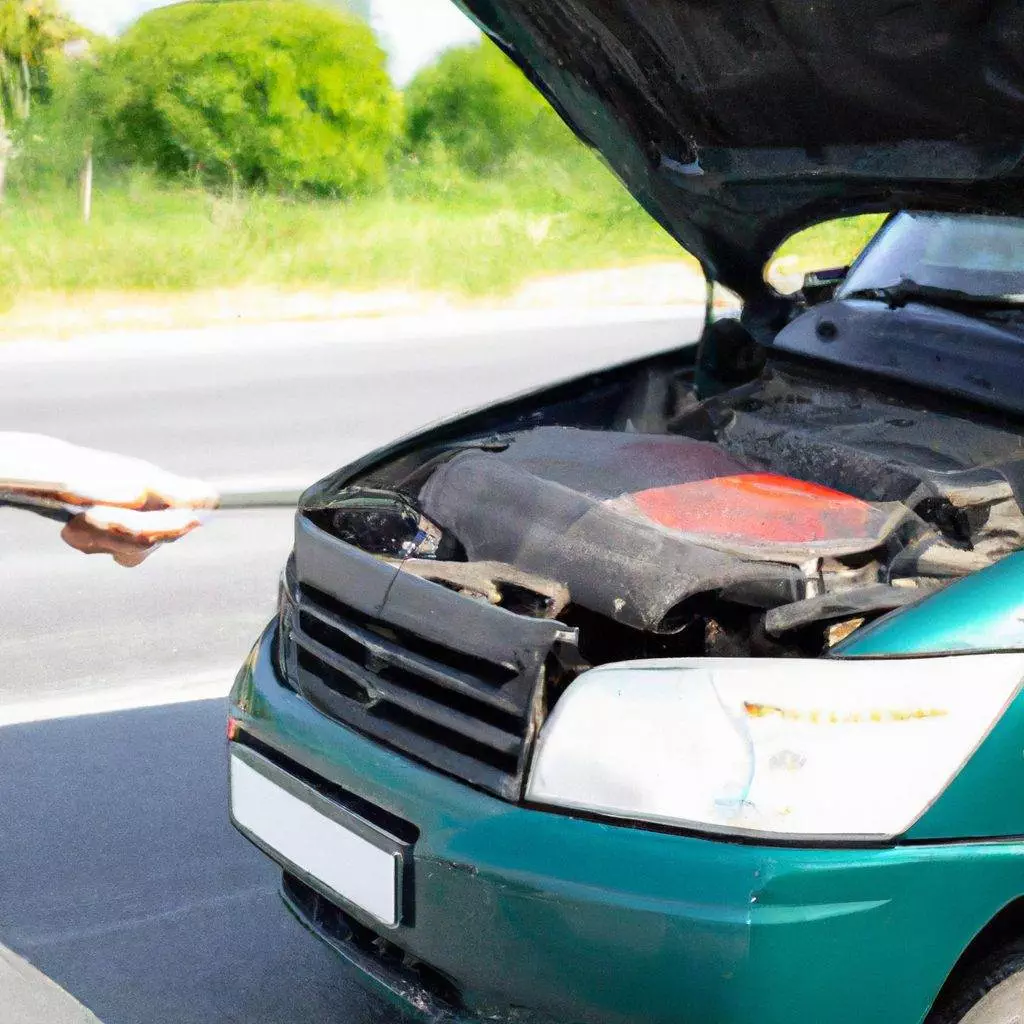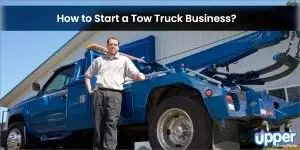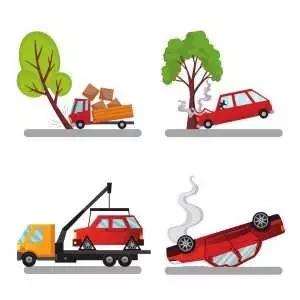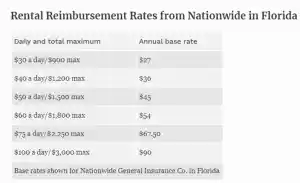Are you searching for effective strategies to save money on your tow truck? In this article, we will explore various practical tips that can help you reduce expenses and maximize your savings. By implementing these suggestions into your business operations, you will be able to optimize your spending without compromising the quality of your towing services. So, let’s delve into the world of cost-saving techniques specifically tailored for tow truck owners and operators.

1. Regular Maintenance
Regular maintenance is crucial for ensuring the optimal performance and longevity of your tow truck. By staying on top of routine inspections, you can identify any potential issues and address them before they become major problems. It is recommended to have a comprehensive inspection performed by a qualified mechanic at least once a month. This will help you catch any signs of wear and tear, such as worn-out brake pads, damaged belts, or leaky hoses.
Checking fluid levels regularly is another essential aspect of maintaining your tow truck. This includes engine oil, transmission fluid, coolant, and brake fluid. Low fluid levels can lead to serious mechanical issues and even engine failure if left unattended. By monitoring and topping up these fluid levels as needed, you can prevent costly repairs and keep your tow truck running smoothly.
Replacing worn-out parts on time is crucial for both the safety and efficiency of your tow truck. Components such as tires, brakes, and suspension parts can wear down over time, compromising the overall performance of the vehicle. Regularly inspect these parts and replace them as recommended by your manufacturer or mechanic to avoid costly breakdowns and ensure the safety of your tow truck and its occupants.
Keeping your tires properly inflated is not only important for safety but also fuel efficiency. Underinflated tires can increase rolling resistance, causing your tow truck to consume more fuel. On the other hand, overinflated tires can result in uneven tire wear and reduced traction. Check your tire pressure regularly and maintain it at the recommended levels to maximize fuel efficiency and prolong the lifespan of your tires.
2. Efficient Fuel Consumption
Fuel costs can account for a significant portion of your tow truck operation expenses. To optimize fuel consumption and save money, consider the following tips:
Drive smoothly and avoid rapid acceleration to minimize fuel consumption. Sudden bursts of acceleration can waste fuel and put unnecessary strain on your engine. Instead, accelerate gradually and maintain a consistent speed whenever possible.
Using the right type of fuel for your tow truck is also important for optimizing fuel efficiency. Consult your owner’s manual or check with your manufacturer to determine the recommended fuel grade for your specific vehicle. Using a higher-octane fuel than necessary does not provide any additional benefits and can be a waste of money.
Regularly checking and replacing the air filter is a simple yet effective way to improve fuel efficiency. A dirty or clogged air filter can restrict airflow to the engine, reducing fuel efficiency and performance. Replace the air filter as recommended by your manufacturer to ensure optimal fuel consumption.
Minimizing idle time is another key strategy for reducing fuel consumption. When your tow truck is idling, it is consuming fuel without providing any productive output. Whenever possible, turn off your engine when you know you will be stationary for an extended period of time, such as during loading or waiting times.
3. Reduce Insurance Costs
Insurance is a necessary expense for any tow truck owner, but there are ways to minimize the costs associated with it. Consider the following strategies:
Comparing different insurance providers is a smart move to ensure you are getting the best coverage at the most competitive rates. Request quotes from multiple insurance companies and compare their offerings in terms of coverage, price, and customer service. This will allow you to make an informed decision and potentially save money on your insurance premiums.
Increasing your deductible can help lower your insurance costs. A deductible is the amount you agree to pay out of pocket before your insurance coverage kicks in. By opting for a higher deductible, you assume more financial responsibility in the event of an accident or damage, but your insurance premiums may be lower as a result.
Installing security alarms and trackers on your tow truck can help lower your insurance premiums. These devices act as deterrents against theft and can provide valuable information for recovery in the event of a stolen vehicle. Insurance companies often offer discounts for vehicles equipped with such security enhancements.
Maintaining a good driving record is crucial for keeping your insurance costs down. Safe driving practices, such as obeying traffic laws and avoiding accidents, can help you avoid traffic violations and claims that can result in increased insurance premiums. Take defensive driving courses and stay updated with traffic laws to enhance your driving skills and maintain a clean driving record.
4. Streamline Operations
Efficient operations are essential for maximizing the profitability of your tow truck business. Consider the following strategies to streamline your operations:
Optimizing dispatching and routing is crucial for minimizing travel time and fuel consumption. Utilize software or mobile applications that can help you plan the most efficient routes for your tow trucks. By taking into account factors such as distance, traffic conditions, and customer locations, you can reduce unnecessary driving and ensure timely service.
Investing in GPS tracking systems can provide real-time visibility into the location and status of your tow trucks. This allows for better coordination and dispatching, as well as the ability to provide accurate estimated arrival times to your customers. GPS tracking can also deter theft and improve recovery efforts in the case of a stolen vehicle.
Implementing effective inventory management practices can help reduce costs and optimize operations. Keep track of your inventory, including spare parts, tools, and other supplies, to avoid overstocking or running out of essential items. Adopting a system that allows for easy tracking and reordering of inventory can maximize efficiency and minimize downtime.
Training and retaining skilled drivers is crucial for the success of your tow truck business. Skilled drivers can efficiently handle various towing situations, ensuring safety and minimizing potential damages to vehicles. Invest in driver training programs and provide opportunities for professional development to create a team of competent and reliable drivers.

5. Utilize Technology
Leveraging technology can significantly enhance the efficiency and profitability of your tow truck business. Consider the following technological solutions:
Using digital communication systems can streamline communication between dispatchers, drivers, and customers. Utilize mobile applications or software that allow for real-time communication, service requests, and updates. This can eliminate miscommunication, improve response times, and enhance customer satisfaction.
Automated billing and invoicing systems can simplify the financial aspects of your business. By automating these processes, you can reduce administrative tasks and minimize the chances of errors or missed payments. Invest in accounting software or utilize online platforms that offer these features to streamline your billing and invoicing processes.
Fleet management software can provide valuable insights and data for optimizing your tow truck operations. These software solutions offer features such as vehicle tracking, maintenance scheduling, and performance analytics. By utilizing fleet management software, you can make informed decisions, improve efficiency, and reduce costs associated with vehicle maintenance and downtime.
Exploring telematics solutions can provide comprehensive vehicle data and analytics. Telematics systems combine GPS technology with onboard diagnostics to monitor various aspects of your tow trucks, including fuel consumption, engine performance, and maintenance needs. This data can be used to identify areas for improvement and implement proactive maintenance strategies.
6. Practice Defensive Driving
Defensive driving is crucial for the safety of your tow truck drivers, the vehicles they tow, and other road users. By adopting defensive driving practices, you can also minimize the risks of accidents, reduce insurance costs, and avoid costly repairs. Consider the following defensive driving tips:
Adhere to speed limits and traffic rules to ensure the safety of everyone on the road. Speeding not only increases the risk of accidents but also results in higher fuel consumption and increased wear and tear on your tow truck. Always obey traffic laws and adjust your speed according to the road conditions.
Maintain safe distances from other vehicles to give yourself ample reaction time in case of sudden stops or emergencies. Avoid tailgating and allow for a comfortable cushion of space between your tow truck and the vehicle in front of you. This can prevent rear-end collisions and reduce the likelihood of damage to both vehicles.
Stay alert and avoid distracted driving. Keep your focus on the road and avoid engaging in activities that can divert your attention, such as texting, eating, or using electronic devices. Maintaining a clear and attentive mind can help you anticipate potential hazards and react appropriately.
Regularly attend defensive driving courses to enhance your driving skills and knowledge. These courses provide valuable insights on safe driving techniques, hazard recognition, and defensive maneuvering. Not only do they help improve your driving abilities, but they can also lead to potential insurance discounts.
7. Consider Alternative Financing
Financing a tow truck can be a significant expense, but there are alternative financing options that can help you save money. Consider the following alternatives:
Leasing instead of buying a tow truck can provide several financial advantages. Leasing allows you to pay a lower monthly payment compared to purchasing, as you are essentially renting the vehicle for a predetermined period. Additionally, leasing can provide tax benefits, as lease payments can be deducted as a business expense.
Look for low-interest financing options when purchasing or financing a tow truck. Explore multiple financing sources, including banks, credit unions, and online lenders, to find the most competitive rates and terms. A lower interest rate can save you significant money on the overall cost of your tow truck loan.
Seek government assistance programs that may offer grants, loans, or tax incentives specifically for businesses in the towing industry. Research local and national government programs that provide financial assistance or resources for small businesses in the transportation sector.
Explore equipment financing options that are specifically tailored for tow truck owners. Certain financial institutions or specialized lenders offer financing options designed for purchasing tow trucks and related equipment. These options may come with more favorable terms or lower interest rates compared to traditional loans.
8. Minimize Repairs
Minimizing repairs is crucial for reducing maintenance costs and keeping your tow truck in optimal condition. Consider the following strategies:
Take undertaking preventive maintenance measures to minimize the chances of breakdowns and costly repairs. Regularly schedule maintenance checks and adhere to the recommended maintenance intervals provided by your manufacturer. This includes routine oil changes, filter replacements, tire rotations, and overall inspections.
Drive carefully and avoid accidents to prevent unnecessary damages and repairs. Defensive driving practices, as mentioned earlier, can significantly reduce the risks of accidents and collisions. Always exercise caution on the road and prioritize safety to avoid costly repairs and insurance claims.
Address small issues before they escalate into major problems. Stay vigilant for any signs of abnormalities or changes in your tow truck’s performance, such as strange noises, warning lights, or fluid leaks. It is always better to address minor issues promptly, as they can often be resolved with minimal costs compared to more severe damage.
Seek professional advice for repairs. When you encounter a problem with your tow truck that is beyond your expertise, consult a trusted mechanic or technician. Attempting to fix complex issues without the necessary knowledge or tools can lead to further damage and even costlier repairs. Invest in quality repairs to ensure the longevity and reliability of your tow truck.
9. Maintain Accurate Record-Keeping
Keeping accurate records is crucial for the financial management and optimization of your tow truck business. Consider the following record-keeping practices:
Keep track of fuel and maintenance expenses to accurately assess your operational costs. Record each fuel purchase and maintenance expense meticulously, including receipts and invoices. This will allow you to analyze your expenses and identify areas for potential cost savings.
Monitor mileage and vehicle usage to gain insights into the efficiency and productivity of your tow truck fleet. Keeping accurate mileage records can help you identify trucks that may be underutilized or consuming excessive fuel. This information can guide your decision-making process and assist with route optimization and resource allocation.
Organize receipts and invoices to maintain a clear and efficient record-keeping system. Establish a filing system that allows for easy accessibility and organization of all important documents related to your tow truck business. This will ensure that you can easily retrieve and reference information when needed, simplifying tasks such as tax reporting or warranty claims.
Regularly review and optimize your budget based on your record-keeping and financial analysis. Use your expense records to analyze trends, identify opportunities for cost reductions, and adjust your budget accordingly. A proactive and dynamic budgeting approach can help you effectively manage your finances and maximize profitability.
10. Explore Bulk Purchasing
Purchasing parts and supplies in bulk can provide cost savings and operational efficiencies for your tow truck business. Consider the following strategies:
Buy parts and supplies in bulk to take advantage of volume discounts. By purchasing larger quantities, you can often negotiate better pricing with suppliers and reduce your overall costs. This is especially beneficial for commonly used items such as filters, fluids, and tires.
Establish relationships with suppliers to enhance your purchasing power and access better deals. Building strong relationships with trusted suppliers can lead to discounts, priority access to inventory, and improved customer service. Work with suppliers who understand the specific needs of your towing business and can provide reliable and cost-effective solutions.
Consider cooperative buying arrangements with other tow truck operators. Pooling resources and purchasing power with other businesses in your industry can lead to significant cost savings. Explore options such as joining buying groups or forming partnerships with other tow truck companies to leverage economies of scale and negotiate better prices.
Attend trade shows and industry events to explore new suppliers and stay updated with the latest trends and technologies. These events often host suppliers who offer exclusive discounts or promotions. Networking with other professionals in the industry can also provide valuable insights and opportunities for cost savings.
By implementing these strategies outlined above, you can save money on your tow truck operation while maintaining a high level of safety and efficiency. Regular maintenance, efficient fuel consumption, insurance cost reduction, streamlined operations, technological advancements, defensive driving practices, alternative financing options, minimizing repairs, accurate record-keeping, and exploring bulk purchasing can all contribute to a more cost-effective tow truck business.


